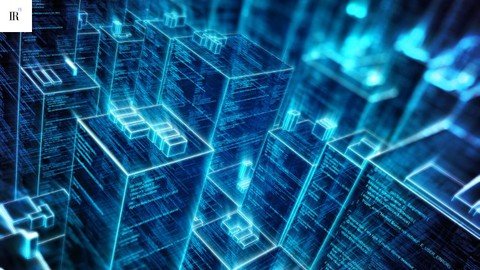
Published 4/2023
MP4 | Video: h264, 1280x720 | Audio: AAC, 44.1 KHz
Language: English | Size: 2.47 GB | Duration: 1h 53m
Database fundamentals, Storage concepts, system design
Free Download What you'll learn
Basics of storage component from system design perspective
Understand database as subset of storage components
Feature based classification of databases to ensure students can select the appropriate one for thier use cases.
Mapping any storage solution to absolute fundamentals.
Requirements
No programming exprience is needed. But having some exprience will make applying the knowledege easier.
Description
Welcome to Storage and Database Fundamentals in System Design, a concise and engaging one-hour course designed specifically for early-stage software professionals. In this course, we'll introduce you to the core concepts of storage systems and databases, equipping you with the foundational knowledge needed to make informed decisions in your software development journey.Our course is structured as a series of bite-sized, reel-style lectures that are easy to follow and highly engaging. By the end of this course, you'll have a solid understanding of storage and database fundamentals and be ready to explore more advanced topics in system design.Course Outline:Introduction to System Design and StorageThe Role of Storage in system designTypes of storage: Volatile and Non-VolatileStorage hierarchy and trade-offsDatabase BasicsWhat is a database and why do we need it?Database components: tables, schemas, and indexesKey database operations: CRUD (Create, Read, Update, Delete)Types of DatabasesRelational Databases: Concepts and examplesNoSQL Databases: Types and use casesData Storage and Retrieval TechniquesIndexingPartitioning: Horizontal and Vertical partitioningSharding and ReplicationKey Factors to Consider in Database SelectionScalabilityConsistencyAvailabilityData ModelResources and Next StepsRecommended books, articles, and online resourcesPopular database management toolsExploring advanced topics in storage and databasesBy the end of this course, you will be better prepared to choose the right storage solutions and database systems for your projects. You will also be able to identify resources for further study to deepen your understanding and enhance your skills in system design. Enroll now and embark on your journey toward becoming a proficient software professional!
Overview
Section 1: Introduction
Lecture 1 Introduction
Lecture 2 Data and Stack
Lecture 3 Data and Heap
Lecture 4 Storing data on disks
Lecture 5 Data storage formats
Section 2: Introduction to Database as storage systems
Lecture 6 Are databases silver bullets when it comes to storing information or data?
Lecture 7 In database and storage, Need for Speed is the ultimate game!
Lecture 8 The feature and requirements for persisting the data
Lecture 9 Storing information as Key Value pairs
Lecture 10 Storing data as collection of fields
Section 3: ACID Properites: The must knows for every developer and software tester
Lecture 11 Section Introduction
Lecture 12 ACID properties
Lecture 13 Atomicity : A in the ACID
Lecture 14 Consistency : C in ACID
Lecture 15 Isolation : I in ACID
Lecture 16 Durability : D in ACID
Lecture 17 Transcations in Databases
Lecture 18 SQL doesnot mean Relational Database!
Section 4: Types of Databases
Lecture 19 Types of Databases
Lecture 20 Relational Database
Lecture 21 Key Value Stores
Lecture 22 Document Databases
Lecture 23 Wide Column Databstores
Lecture 24 Graph Databases
Lecture 25 Time Series Databases
Lecture 26 Search Index
Section 5: Types of database deployments
Lecture 27 Section introduction
Lecture 28 Database server instances
Lecture 29 Embededded Databases
Lecture 30 Replication in databases. Primary-Secorndary, Master-Master
Section 6: Database Nuances and additional features
Lecture 31 Section Introduction
Lecture 32 SQL : Facts, Myths and Pitfalls
Lecture 33 Horizontal Scaling vs Vertical Scaling?
Lecture 34 Sharding data vs Partitioning Data?
Lecture 35 Storage Engine: Row Store, Column store
Lecture 36 Indexes in databases
Lecture 37 Query Tuning for getting optimal performance from databases
Lecture 38 Concept Read Heavy Vs Write Heavy, Change Data Capture
Section 7: Conclusion
Lecture 39 Closing Remarks, Multi Version Concurrency Control, Snapshot Isolation
Lecture 40onus Lecture
Begineer software developers curious about storage technologies.,Computer science students eager to learn production technologies.,Software developers seeking fundamental preparation material for system design interview.
Homepage
https://www.udemy.com/course/system-design-essentials-storage-and-database-fundamentals/Rapidgator
dlxcv.S.D.E.S.A.D.F.part3.rar.html
dlxcv.S.D.E.S.A.D.F.part1.rar.html
dlxcv.S.D.E.S.A.D.F.part2.rar.html
Uploadgig
dlxcv.S.D.E.S.A.D.F.part3.rar
dlxcv.S.D.E.S.A.D.F.part2.rar
dlxcv.S.D.E.S.A.D.F.part1.rar
NitroFlare
dlxcv.S.D.E.S.A.D.F.part1.rar
dlxcv.S.D.E.S.A.D.F.part3.rar
dlxcv.S.D.E.S.A.D.F.part2.rar
Links are Interchangeable - Single Extraction
